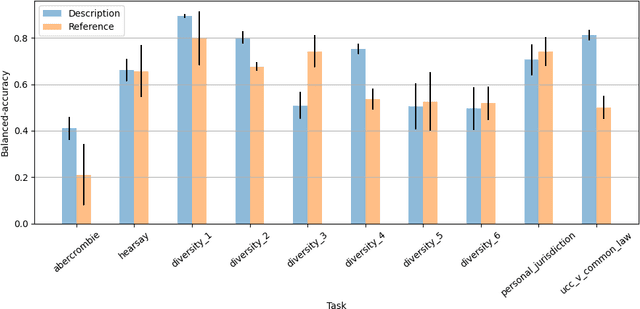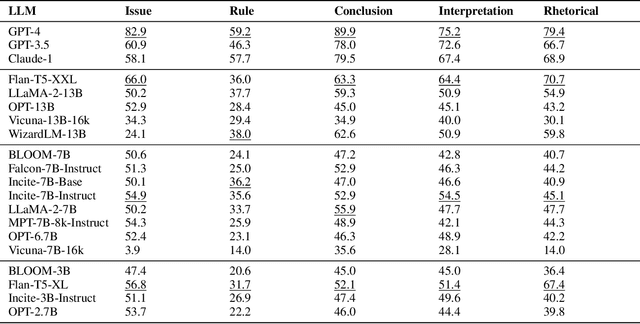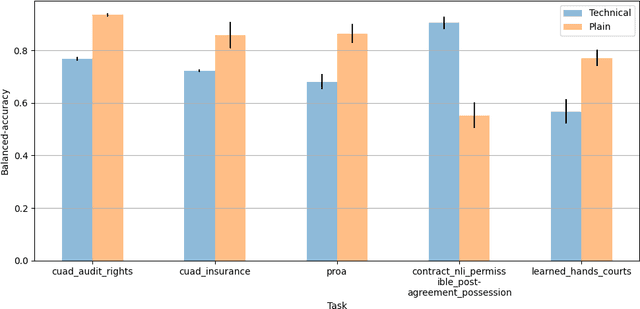Michael Livermore
Lawma: The Power of Specialization for Legal Tasks
Jul 23, 2024



Abstract:Annotation and classification of legal text are central components of empirical legal research. Traditionally, these tasks are often delegated to trained research assistants. Motivated by the advances in language modeling, empirical legal scholars are increasingly turning to prompting commercial models, hoping that it will alleviate the significant cost of human annotation. Despite growing use, our understanding of how to best utilize large language models for legal tasks remains limited. We conduct a comprehensive study of 260 legal text classification tasks, nearly all new to the machine learning community. Starting from GPT-4 as a baseline, we show that it has non-trivial but highly varied zero-shot accuracy, often exhibiting performance that may be insufficient for legal work. We then demonstrate that a lightly fine-tuned Llama 3 model vastly outperforms GPT-4 on almost all tasks, typically by double-digit percentage points. We find that larger models respond better to fine-tuning than smaller models. A few tens to hundreds of examples suffice to achieve high classification accuracy. Notably, we can fine-tune a single model on all 260 tasks simultaneously at a small loss in accuracy relative to having a separate model for each task. Our work points to a viable alternative to the predominant practice of prompting commercial models. For concrete legal tasks with some available labeled data, researchers are better off using a fine-tuned open-source model.
LegalBench: A Collaboratively Built Benchmark for Measuring Legal Reasoning in Large Language Models
Aug 20, 2023



Abstract:The advent of large language models (LLMs) and their adoption by the legal community has given rise to the question: what types of legal reasoning can LLMs perform? To enable greater study of this question, we present LegalBench: a collaboratively constructed legal reasoning benchmark consisting of 162 tasks covering six different types of legal reasoning. LegalBench was built through an interdisciplinary process, in which we collected tasks designed and hand-crafted by legal professionals. Because these subject matter experts took a leading role in construction, tasks either measure legal reasoning capabilities that are practically useful, or measure reasoning skills that lawyers find interesting. To enable cross-disciplinary conversations about LLMs in the law, we additionally show how popular legal frameworks for describing legal reasoning -- which distinguish between its many forms -- correspond to LegalBench tasks, thus giving lawyers and LLM developers a common vocabulary. This paper describes LegalBench, presents an empirical evaluation of 20 open-source and commercial LLMs, and illustrates the types of research explorations LegalBench enables.
 Add to Chrome
Add to Chrome Add to Firefox
Add to Firefox Add to Edge
Add to Edge